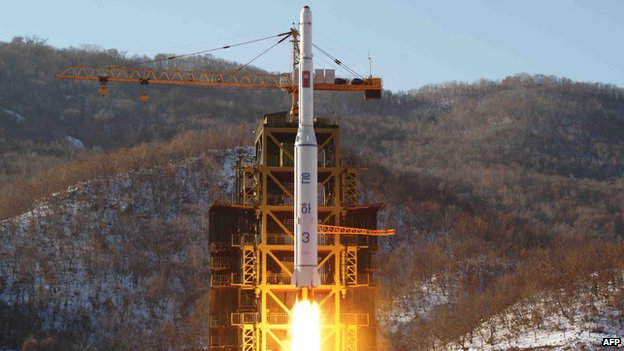North Korea announced Wednesday it had successfully carried out its first hydrogen bomb test, a development that, if confirmed, would marking a stunning step forward in its nuclear development.
 North Korea announced Wednesday it had successfully carried out its first hydrogen bomb test, a development that, if confirmed, would marking a stunning step forward in its nuclear development.
North Korea announced Wednesday it had successfully carried out its first hydrogen bomb test, a development that, if confirmed, would marking a stunning step forward in its nuclear development.
"The republic's first hydrogen bomb test has been successfully performed at 10:00am on January 6, 2016, based on the strategic determination of the Workers' Party," a state television news reader announced.
"With the perfect success of our historic H-bomb, we have joined the rank of advanced nuclear states," the announcer said, adding that the test was of a "miniaturized" device.
The surprise test was personally ordered by North Korean leader Kim Jong-Un and came just two days before his birthday.
Only last month, during remarks made during an inspection tour, Kim had suggested Pyongyang had already developed a hydrogen bomb -- although the claim was greeted with skepticism by international experts.
A hydrogen, or thermonuclear device, uses fusion in a chain reaction that results in a far more powerful explosion.
"The latest test, completely based on our technology and our manpower, confirmed that our newly-developed technological resources are accurate and scientifically demonstrated the impact of our miniaturized H-bomb," the TV announcer said.
However, South Korea "strongly" condemned the announcement about the hydrogen bomb test and vowed to take "all necessary measures" to penalize its nuclear-armed neighbor.
"We strongly condemn that North Korea carried out a fourth nuclear test in clear violation of UN Security Council resolutions, despite repeated warnings from us and the international community," said a government statement read on television by the deputy head of the National Security Council (NSC).
President Park Geun-Hye had convened an emergency meeting of the NSC as soon as the test was announced.
"We will take all necessary measures including additional sanctions by the UN Security Council... so that the North will pay the price for the nuclear test," the statement said.